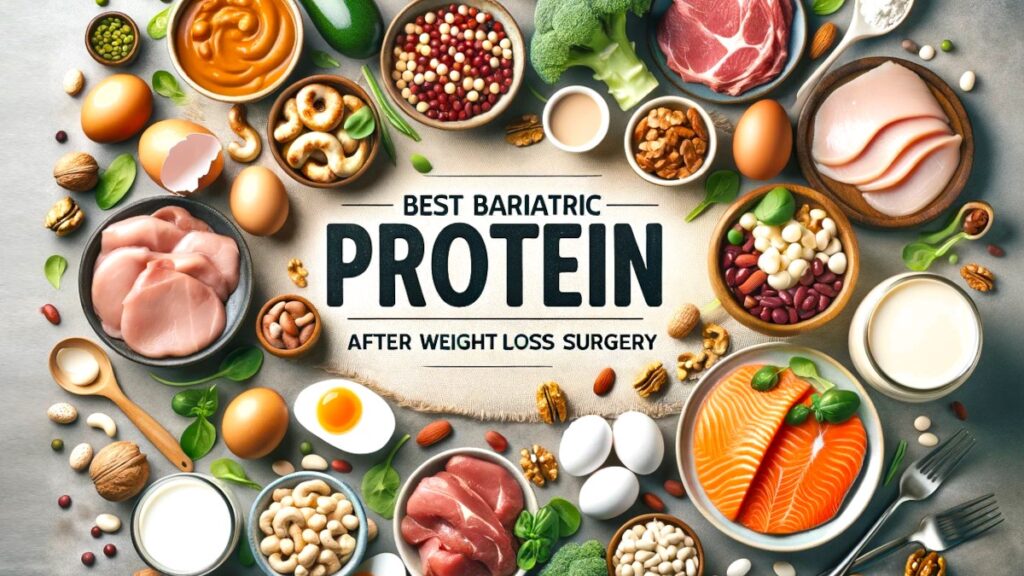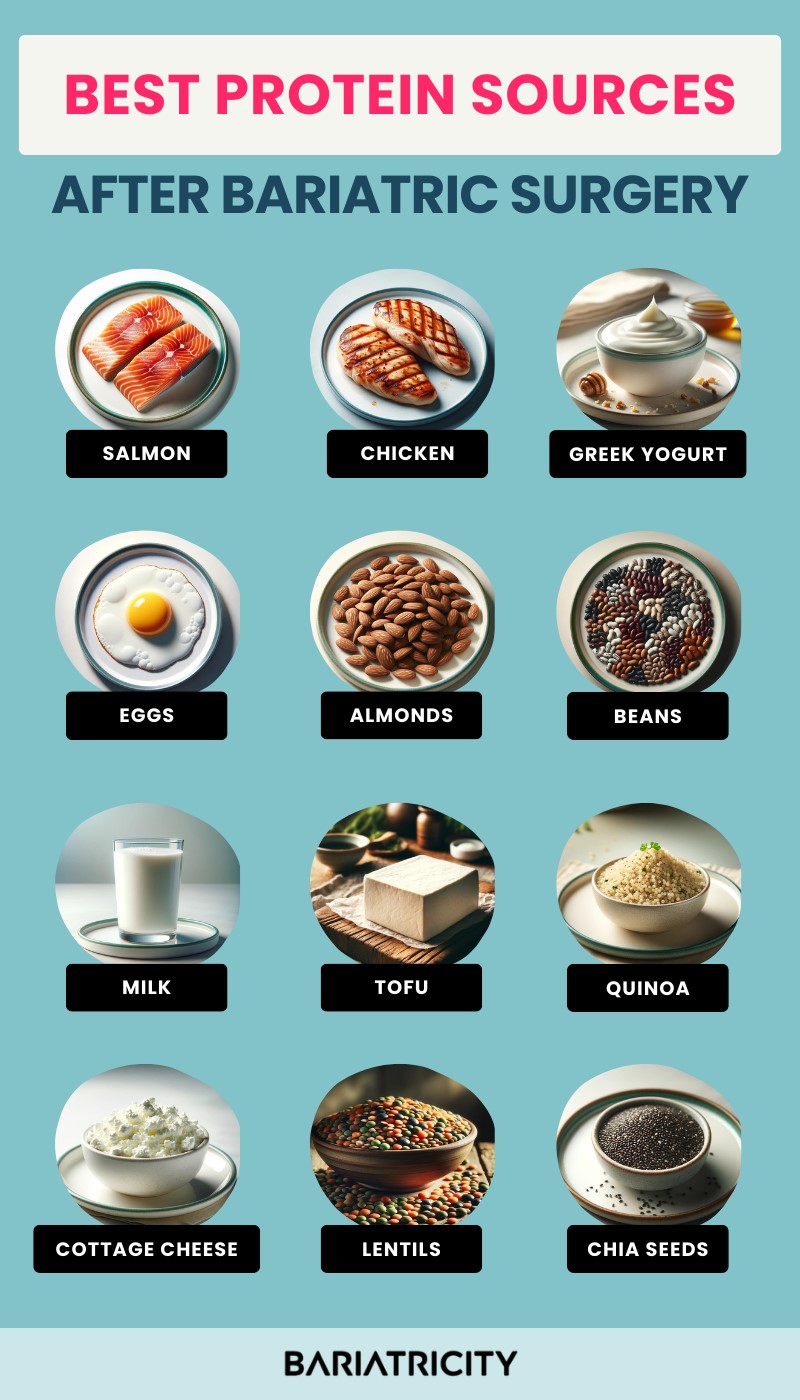After weight loss surgery, daily protein requirements are prioritized due to maintain muscle mass while losing weight and support a new, healthier metabolism. During each meal of the post-op diet, protein should be consumed first until you reach your recommended daily protein-intake goal of 60-90 grams.
Given the reduced stomach capacity following bariatric surgery, it’s vital that each calorie consumed is rich in essential nutrients to support bodily functions and overall health.
Why is Protein Important After Bariatric Surgery?
After bariatric surgery, protein plays a key role in adopting a healthier lifestyle. It helps you feel fuller for longer periods of time and ensures your body remains healthy.
- Provides essential nutrients
- Helps prevent hair loss
- Enhances the healing process
- Helps maintain muscle mass
Best Protein Sources After Bariatric Surgery
How to Incorporate Protein in Your Post-Op Diet
- Incorporate lean proteins such as chicken breast, turkey, white fish, shrimp, low-fat cheese, greek yogurt, and eggs.
- Supplement with our natural bariatric protein shakes.
- Protein should be eaten first. With a smaller stomach, you want to consume protein before you get too full from the rest of your meal.
- Find additional protein sources. Protein can also be found in beans, nuts, seeds, quinoa, vegetables.
- Track protein with a food diary or use an app on your phone.
Bariatric Protein Shakes
Protein shakes are a great way to implement protein into your diet. especially right after undergoing surgery.
Having drinkable protein makes it a safer way to consume protein while healing and adjusting to your new, restricted stomach.
They are filling, satisfying, tasty, and provide a low-calorie meal replacement option.
However, it is not recommended to rely on shakes as your main source of protein. It is important to get most protein from a variety of whole foods in your diet.
These are 13 foods you should NEVER eat after gastric sleeve surgery.
Recommended Protein Shakes
Other high-protein options for homemade shakes include (other than protein powder):
- Greek yogurt
- Cottage cheese
- Chia seeds
- Silken tofu
- Hemp seeds
- Nuts or nut butter
- Spinach
Fat intake with bariatric protein shakes is actually beneficial as it may accelerate weight loss following bariatric surgery. Here are some options for healthy fats to incorporate:
- Nut butter
- Avocado
- Coconut oil
- Flax seeds
Protein Shake Recipes (Ingredients)
You can get about 20-30 grams of protein depending on your recipe variation.
- 1 cup of low-fat plain yogurt (Greek Yogurt)
- 1 Banana (fresh or frozen for a thicker shake)
- 4 tablespoons of PB2 Powder or 100% Natural Peanut Butter
- 1 cup unsweetened almond milk or unsweetened coconut milk
- Optional (unsweetened cocoa powder)
- Ice
Your protein shakes need to be completely blended for best results.
Bariatric Protein Bars
Protein bars are another option for a convenient source of energy and protein. Protein bars are portable and are great for an on-the-go lifestyle because they are small and do not require refrigeration.
With a substantial need for protein after bariatric surgery, protein bars are a great choice. As with protein shakes, it’s important to eat all-natural protein bars that are bariatric safe.

